Powdery Mildew
flowersaremusic z5 Eastern WA
8 years ago
Featured Answer
Sort by:Oldest
Comments (31)
strawchicago z5
8 years agolast modified: 8 years agoflowersaremusic z5 Eastern WA
8 years agoRelated Discussions
Is this powdery mildew on my Oakleaf?
Comments (11)Ok, I dug a little trench around it enough to make sure there aren't any maple roots intruding. Its definitely not wet. No spider mites. It seems very well rooted and I didn't dig if up completely; I felt like I would disturb it too much? The leaves on one side definitely seem like they have some sort of mildew or fuzz on them. I don't like to use sprays but the garden store suggested Advanced rose and flower 2 in one spray. I will give it a try. I did fertilize it with osmocote in early spring and used compost. I really don't want to lose it. Thanks for taking the time to help.......See MorePowdery mildew on nectarines
Comments (4)That does look like powdery mildew. It’s also usually one of the easiest issues to get rid of. One of the best steps is to be diligent about clean orchard management every year. If you’re going the organic route, wettable sulfur can be used for powdery mildew. Many fungicides used for brown rot control are effective against powdery mildew as well. If the infestation isn’t too bad, you can clean off the fruit, and still eat it. I’ve cleaned my fruit with vinegar to get rid of the powdery mildew and then left it on the tree to ripen.Copper fungicide can also be sprayed on every part of your fruit tree, including the fruit. Nectarines, in my part of the country are one of the harder fruits to grow. Regular rotational fungicide management is a must for us. Below is a solid list of fungicides that work for the issue you have. Good luck! https://ipm.ucanr.edu/agriculture/nectarine/powdery-mildew/...See MoreMini rose bush / powdery mildew?
Comments (1)duplicate post.. answers here: https://www.houzz.com/discussions/6376913/mini-rose-bush-powdery-mildew#n=4...See MoreMini rose bush / powdery mildew?
Comments (9)I sometimes try to throw the cornmeal under that plant but it all lands in one clump. Organic fertilizer hates being in a clump, so when you drop it down through the middle of the plant there is a Plinko effect which randomizes the droppage through the leaves. Cornmeal is one of the ingredients in many organic fertilizers. When the beneficial microbes in the soil decompose it, in about 3 weeks the end result is plant food. That is why organic fertilizer is said to be slow release. Actually it is slow decomp followed by very fast uptake by the plants....See MoreValRose PNW Wa 8a
8 years agolast modified: 8 years agoflowersaremusic z5 Eastern WA
8 years agostrawchicago z5
8 years agolast modified: 8 years agoValRose PNW Wa 8a
8 years agoflowersaremusic z5 Eastern WA
8 years agoKhalid Waleed (zone 9b Isb)
8 years agolast modified: 8 years agoValRose PNW Wa 8a
8 years agolast modified: 8 years agostrawchicago z5
8 years agolast modified: 8 years agostrawchicago z5
8 years agolast modified: 8 years agoValRose PNW Wa 8a
8 years agostrawchicago z5
8 years agolast modified: 8 years agostrawchicago z5
8 years agolast modified: 8 years agoflowersaremusic z5 Eastern WA
8 years agostrawchicago z5
8 years agolast modified: 8 years agoValRose PNW Wa 8a
8 years agostrawchicago z5
8 years agolast modified: 8 years agoUser
8 years agolast modified: 8 years agoValRose PNW Wa 8a
8 years agoUser
8 years agolast modified: 8 years agostrawchicago z5
8 years agolast modified: 8 years agoflowersaremusic z5 Eastern WA thanked strawchicago z5ValRose PNW Wa 8a
8 years agoflowersaremusic z5 Eastern WA
8 years agoflowersaremusic z5 Eastern WA
8 years agoflowersaremusic z5 Eastern WA
8 years agostrawchicago z5
8 years agolast modified: 8 years agoflowersaremusic z5 Eastern WA
8 years agostrawchicago z5
8 years agolast modified: 8 years agoflowersaremusic z5 Eastern WA
8 years ago
Related Stories
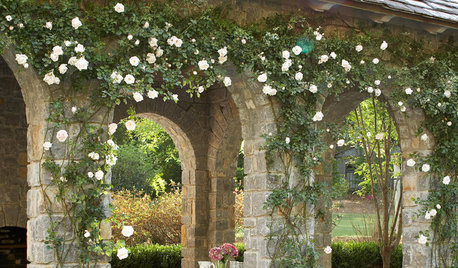
GARDENING GUIDESGreat Design Plant: Rosa Banksiae a Low-Maintenance Beauty
This thornless, disease- and insect-resistant rose brings showers of white or yellow flowers to the spring garden
Full Story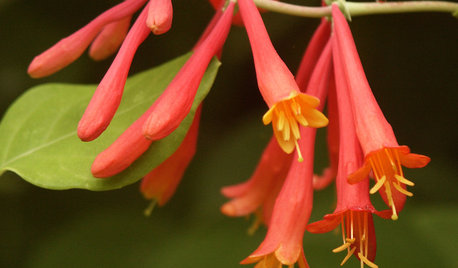
GARDENING GUIDESGreat Design Plant: Lonicera Sempervirens
Grow this long-blooming, flashy flowering vine to cover a fence or arbor and attract hordes of hummingbirds all season long
Full Story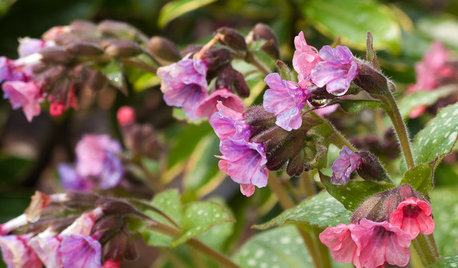
GARDENING FOR BUTTERFLIESGreat Design Plant: Lungwort
Yes, the name is unfortunate. But the flowers and foliage are delightful, and this perennial is easy to grow and shunned by deer
Full Story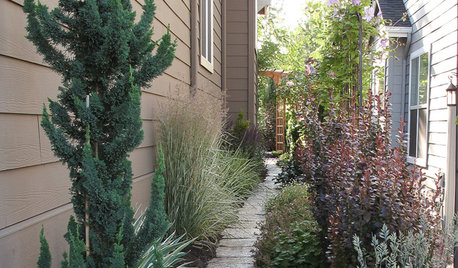
SIDE YARD IDEASNarrow Trees for Tight Garden Spaces
Boost interest in a side yard or another space-challenged area with the fragrance and color of these columnar trees
Full Story
WINTER GARDENINGPruning Secrets for Exquisite Roses
Encourage gorgeous blooms year after year with this time-tested advice on how to prune your rosebush in winter for health and shape
Full Story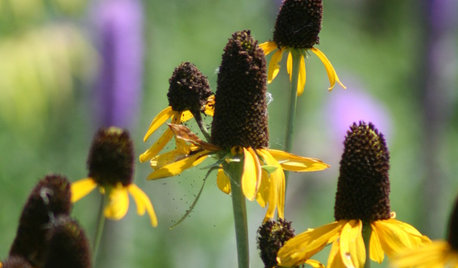
GARDENING FOR BUTTERFLIESGreat Design Plant: Giant Coneflower, a True Exclamation Point
Watch as towering stalks topped by yellow blossoms become a beacon for birds and insects in the midsummer garden
Full Story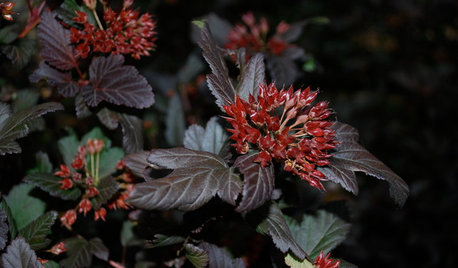
LANDSCAPE DESIGNGreat Design Plant: Sun-Loving Ninebark Puts on a Color Show
This tall, dark and handsome native shrub is equally at home in jeans and boots or in a suit and tie
Full Story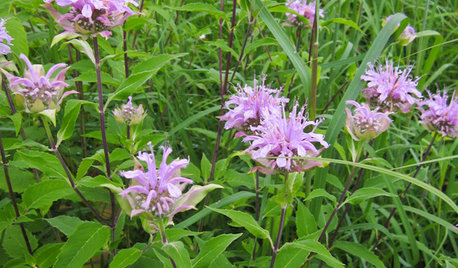
NATIVE PLANTSGreat Design Plant: Wild Bergamot, Friend of Foragers
Nourish butterflies and other winged creatures with the tubular flowers of Monarda fistulosa, a pretty pink native
Full Story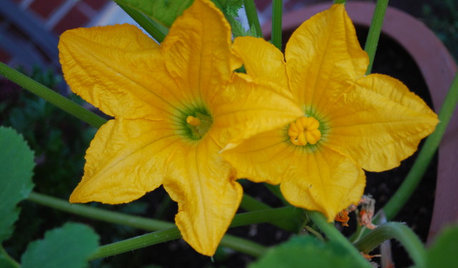
EDIBLE GARDENSSummer Crops: How to Grow Squash
Almost foolproof and with cheerful flowers, squash comes in a wide range of varieties to plant in spring
Full Story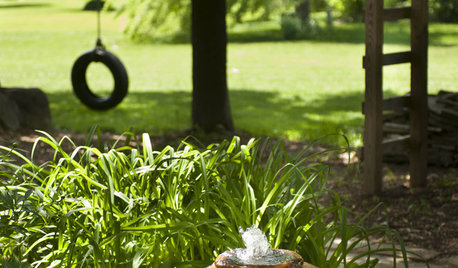
GARDENING AND LANDSCAPINGHow to Give Your Garden More Soul
Feel more at home in your garden by giving it deep, personal meaning
Full Story




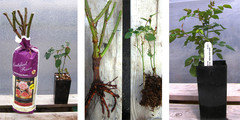
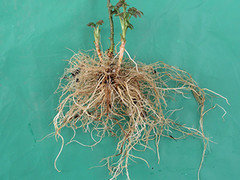
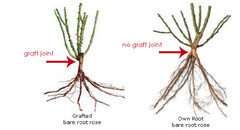
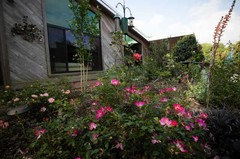




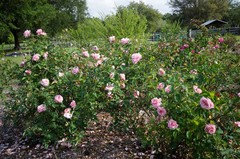
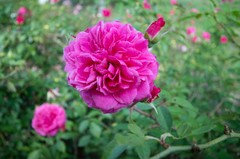




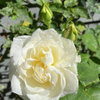
strawchicago z5